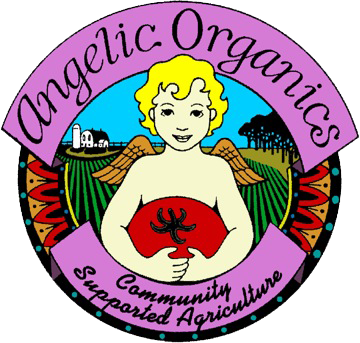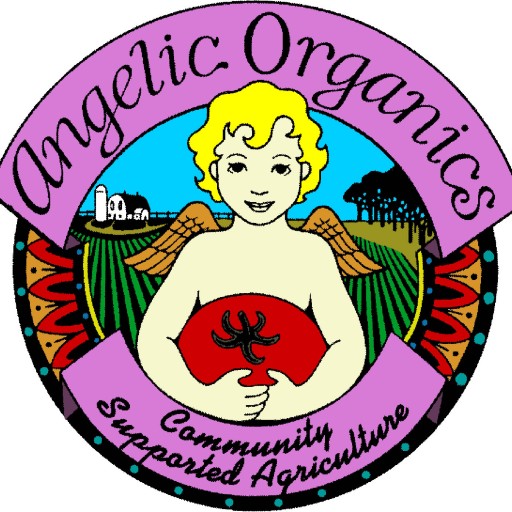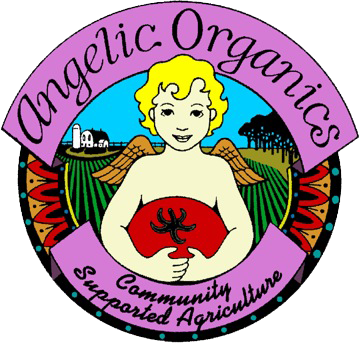Moonlighting
The following essay by Farmer John is reprinted from the Farm News: Week 3, July 15, 1995
Three years ago I did a reading at a gallery in Laredo. An attractive young blond woman listened to my story with rapt attention. Even as I read, I was aware of her glamour. She’s like a movie star, I thought. She introduced herself after the reading.
“My name’s Gail. I loved your story. I want to write about my life, too.”
Gail stood squarely in front of me. I felt comfortable in the open gaze of her pretty gray green eyes. I watched her lipstick form around the words she spoke. Her words were direct, penetrating; they seemed to emanate from a place of true confidence. She spoke them in a soft, Texan cadence.
“I wonder if you could help me,” she said.
“To write?”
“I want to write, but that’s just part of it . . . I want a different life. You seem like you could help, or you know people who could help. I just feel I need to talk to you.”
The gallery crowd was thinning out. We lingered in the lobby.
“I want to go into acting. My father hates my theater success. I was in a summer group that traveled to all the big cities in Texas – Houston, Dallas, Fort Worth, Austin. I did especially great in Austin. You should see the review of the Austin performance; we did The Best Little Whorehouse in Texas. They were crazy about me; most of the review was raves about my performance.I had to hide it from my father, or he would have beat me good.”
“Wait a minute,” I said. “Can’t you just get out of the house? Your father beats you? Can’t you call the police if he does that? Why are you at home anyway?”
“My father’s a cop. All the cops protect him. That’s the way they are. They get away with murder. And I’m not 18 yet. I can’t leave. I don’t have anyplace to go, anyway.” She looked at me bravely.
“Not 18?” I exclaimed. “You look 25!”
“The gallery’s closing. ‘Scuse me’,” the attendant twanged. “Gallery’s closing.”
We were shuttled out the door, into the weekend squeal of tires and din of revving engines. In what seemed an instant, I had become a willing participant in this young woman’s life.
I had numerous friends in Laredo, so I had scheduled a stay there of several days. During this little vacation from farm work – it was early spring – Gail and I met at a shopping mall. As we wandered this ultimate suburban ghetto, she shared her story without self pity – the theater, the beatings, her dream of a creative life. Her speaking was without pretense, disarmingly straightforward – the exceptional, communicating through the mundane. There I was, I mused, a busy Illinois farmer counseling a tragic, poetic teenager in a Texas shopping mecca. I wondered how my 40 year old cultivating tractor would look in the shiny shopping pavilion.
We occasionally ran into her mall friends, and the conversation would quickly turn to moons. One of the stores had a new hanging moon, all iridescent – even electric, I think. Gail loved moons. She said her bedroom was full of moons. Moons hung from her ceiling. Moons were painted on her walls. Moons were pasted to her windows. She loved moonlight. Her face is the color of moonlight, I thought.
Gail asked if she could come to Angelic Organics to think, to figure out her life.
Over the years people down on their luck have straggled onto the farm, gas tank empty, tires down to the cords. “Can we have food? Can we have a place to stay? We’ll work for nothing.” I usually help, especially if they’re people I believe in. Sometimes helping these people has made a big difference; usually it hasn’t. The last one I gave refuge to drove off wearing my shirt; he insisted it was his.
“If you really want to come to the farm, I think you should bring it up with your parents,” I suggested. “I’ll talk to them, if you want.”
“My dad would kill you.”
“Kill me? He might think farm life would be good for you.”
“You don’t know my dad. My dad lost a poker game to my uncle when I was 13, so my uncle got to rape me; those were the stakes. Ever since then my dad’s been beating me and calling me a whore.”
“Your dad’s brother did this?”
“Yeah. He’s a cop, too.”
“I’ll tell you what,” I offered, not very anxious to meet her dad by now, “if you can’t work something out with your folks, wait ’til you’re 18. They can’t stop you then. But if you come to the farm, you’ll have to work. You don’t have to work full time, but you’ll have to do some work there.”
“I’ll work,” she promised.
“It’d be good for you, I think. You’d be around creative people who have an idea of what you’re up to. They’d be supportive of your acting, and I think some hard work would do you some good. Look at these mall kids we’re running into. They don’t have a clue about how you want your life to be. They’re not going to help you get anywhere.”
When I returned to the farm, Kimberely and I pondered the prospect of being friend, parent, and boss to Gail. Kimberely cautiously supported the arrangement, feeling for Gail, but knowing that our support could go awry.
Gail sent a beautiful letter wrapped in cellophane and filled with moons. We spoke occasionally by phone. She bided time until her 18th birthday.
She called in July. “John, I got a scholarship to go to some college in New York.”
“You did! What kind of scholarship? Where to?”
“It’s in New York City. I don’t have any idea where that place New York is. You’ve been there, haven’t you?”
“Yes, I’ve been there. What college?”
“It’s some place called Julliard. I don’t really know anything about it. My drama teacher just said to come to this audition at my high school, and I went. Julliard said they wanted me, and they’d pay for everything but living. They said I had some rare gift; they could recognize it right away.”
“Amazing. Living in New York City is expensive,” I added, “but still, all your tuition paid to go to Julliard – that’s just a fantastic thing. And New York would be great for you.”
“I wouldn’t even know how to find the place when I got there,” she said.
“I could meet you there – in New York. Is that what you want? I go there anyway, sometimes. When do they want you?”
“Any time in the next two years, they said. You think that Julliard is a pretty good place?”
“I don’t know what they have for a drama department, but it’s got a great music reputation. This is a great thing for you! This is exactly the thing you need now.”
Gail’s 18th birthday was in late July. She called in August. “I’ve gotta’ get outa’ here. It’s really bad. He’s beating me bad.”
“Your dad?”
“Yeah,” she cried. “I’m gonna’ come up there. I’m taking the bus. How do I do it?”
“Are you packed?”
“I’ve got two bags packed.”
“What’d you pack?”
“Moons.”
“Moons?!”
“I’ve gotta’ bring my moons.”
“Just moons?”
“That’s all there’s room for.”
“No extra clothes. No clothes to work in?”
“I only have room for the moons. I had to sit on the suitcase to fit them in.”
“Hold on a minute. I’ve got to talk to Kimberely about this.”
Kimberely and I had a brief meeting about Gail and her luggage. Angelic Organics was loaded with tomatoes, cucumbers, basil, peppers, and onions, and – as faithful readers of these essays will suspect – we were short on help.
“Gail,” I said, “we really want you to come here. It’s fine to bring your moons, but you have to know you’re going to have to pitch in a little bit and help. It’s just a wildly busy time on the farm. We won’t be too hard on you. We know it’s been tough for you, but you’ve gotta’ help out a little.”
“In the sun?” she asked.
“In the sun?” I replied, confused. “Sun? Sometimes it’s cloudy, but, you mean . . . what? Do you burn?”
“I’ll work in the moonlight,” she said.
“No, no, we all work during the day. We need you during the day.”
“I hate the sun. I hate daylight.” she sobbed. “I’ll do anything you want in the moonlight. I’ll cook. I’ll get rid of the weeds. I have to get out of here.”
“You can’t see the weeds well enough in the moonlight. Gail, you don’t know anything about farming. You’ve got to work with people who can show you what to do. We just want you to know ahead of time what we expect, if you’re going to live here. And we’ll go to New York together, and I’ll help you find Julliard. You can figure out if you want to go there, and nobody here will yell at you for wanting to be an actress.”
“I can’t work in the sun,” she said. She hung up, crying.
I called Gail’s home a few days later, wondering what had become of her. Her father immediately hung up on me. I tried a few more times – he kept hanging up. I had no other idea how to reach her. I waited a couple months, called again.
“I want to know what’s happened to your daughter, and don’t hang up on me!” I demanded.
“Who are you?” he growled.
“A friend, and I wondered if she went off to acting school or what happened to her.”
“Acting school?”
“Yeah, that scholarship she got. Did she decide to use it? Is she going to Julliard or what?”
“What’d she tell you?”
“She told me about the summer tour she was on, and how much she loves the stage.”
“Stage?”
“The theater. Your daughter’s an actress, you know?”
“Actress? . . . let me tell you something,” he drawled. “she ain’t never acted in nothing. Well – just that one line she had when she was a sophomore. She made such a mess of that one line; no one even heard it.”
“What about the tour?”
“She never went on no tour. She ain’t been to school since she was a sophomore. I couldn’t get her to go back no matter what. She run off to San Francisco with some musicians – working in a Burger King.”
“Burger King?”
“Yeah, she’ll find out what the world is really like.”
There was a long pause.
“So she’s telling those stories again . . .” her father reflected and hung up. I never heard from Gail again. I wonder which one of them was lying.


